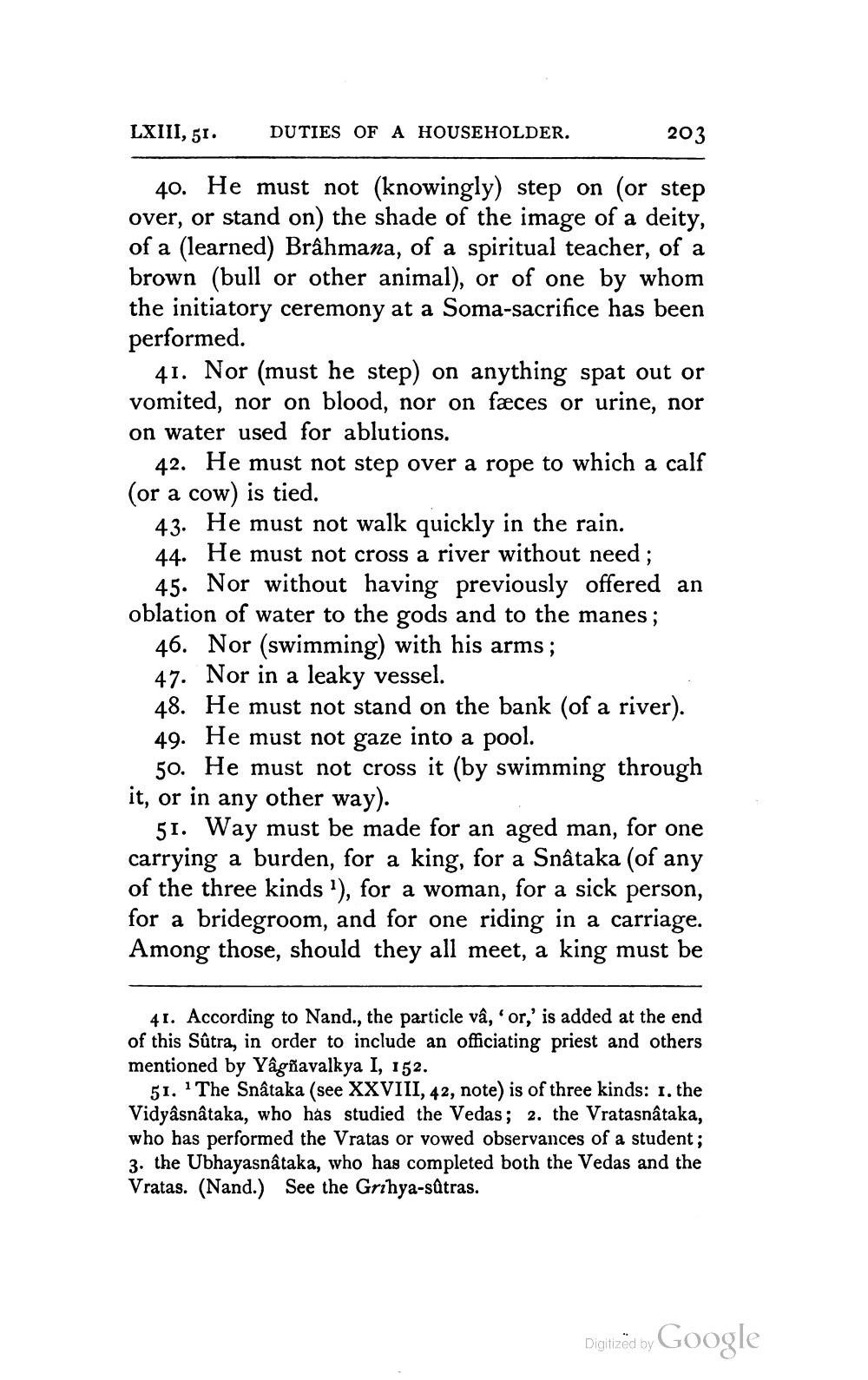________________
LXIII, 51.
DUTIES OF A HOUSEHOLDER.
203
40. He must not (knowingly) step on (or step over, or stand on the shade of the image of a deity, of a (learned) Brâhmana, of a spiritual teacher, of a brown (bull or other animal), or of one by whom the initiatory ceremony at a Soma-sacrifice has been performed
41. Nor (must he step) on anything spat out or vomited, nor on blood, nor on fæces or urine, nor on water used for ablutions.
42. He must not step over a rope to which a calf (or a cow) is tied.
43. He must not walk quickly in the rain. 44. He must not cross a river without need;
45. Nor without having previously offered an oblation of water to the gods and to the manes;
46. Nor (swimming) with his arms; 47. Nor in a leaky vessel. 48. He must not stand on the bank (of a river). 49. He must not gaze into a pool.
50. He must not cross it (by swimming through it, or in any other way).
51. Way must be made for an aged man, for one carrying a burden, for a king, for a Snâtaka (of any of the three kinds ), for a woman, for a sick person, for a bridegroom, and for one riding in a carriage. Among those, should they all meet, a king must be
41. According to Nand., the particle vâ, or,' is added at the end of this Sûtra, in order to include an officiating priest and others mentioned by Yâgñavalkya I, 152.
51. The Snâtaka (see XXVIII, 42, note) is of three kinds: 1. the Vidyâsnâtaka, who has studied the Vedas; 2. the Vratasnataka, who has performed the Vratas or vowed observances of a student; 3. the Ubhayasnataka, who has completed both the Vedas and the Vratas. (Nand.) See the Grihya-sđtras.
Digitized by Google




